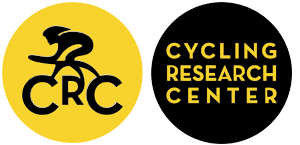Influence of Absolute versus relative L-arginine Dosage on 1 km and 16.1 km time trial performance in trained cyclists.
Keywords:
Physiology, Performance, Nutrition, SupplementationAbstract
This investigation aimed to determine the effects of L-arginine supplementation on cycling time trial (TT) performance. Eight trained male cyclists performed 1 and 16.1km time trials on three occasions, control (CON), absolute (ABS) and relative (REL) loading. Participants consumed 500ml of water with either 6g (ABS), 0.15 g·kg-1 body mass (REL) of L-arginine or water (CON) 90min prior to testing. Time to completion, mean power output (Wmean) and post-exercise lactate (La) were recorded for each TT. Time to completion decreased non-significantly for 1 and 16.1km TT’s during ABS and REL trials compared to CON. Wmean was significantly different between CON and REL during 16.1 km TT (196.19 ± 32.40W and 215.81 ± 31.56W). Blood lactates was significantly different between CON and ABS for the 1 km TT (p = 0.04) (13.59 ± 1.21 mmol·L-1 and 12.38 ± 0.70 mmol·L-1, respectively) and between CON and ABS (p = 0.04) (9.11 ± 2.91mmol·L-1 and 7.64 ± 3.01mmol·L-1, respectively) and CON and REL (9.11 ± 2.91mmol·L-1 and 7.15 ± 2.96mmol·L-1, respectively) for 16.1km TT. These results indicate L-arginine supplementation does not significantly improve cycling TT performance, though there was a trend towards reduced time to completion and increased mean power output, and that relative doses appear more effective than absolute doses.
Downloads
Published
How to Cite
Issue
Section
Copyright (c) 2014 Journal of Science and Cycling

This work is licensed under a Creative Commons Attribution-NonCommercial 4.0 International License.
Authors contributing to Journal of Science and Cycling agree to publish their articles under a Creative Commons CC BY-NC-ND license, allowing third parties to copy and redistribute the material in any medium or format, and to remix, transform, and build upon the material, for any purpose, even commercially, under the condition that appropriate credit is given, that a link to the license is provided, and that you indicate if changes were made. You may do so in any reasonable manner, but not in any way that suggests the licensor endorses you or your use.
Authors retain copyright of their work, with first publication rights granted to Cycling Research Center.






